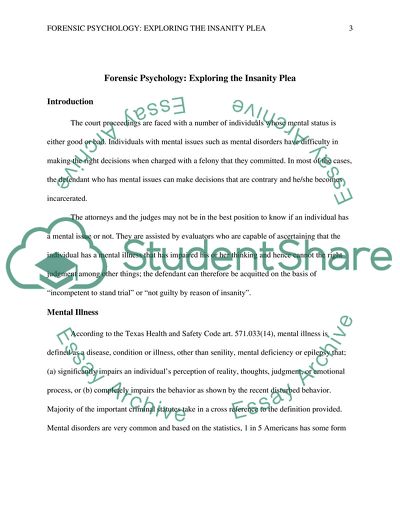Cite this document
(“Forensic Psychology: Exploring the Insanity Plea Research Paper”, n.d.)
Forensic Psychology: Exploring the Insanity Plea Research Paper. Retrieved from https://studentshare.org/professional/1753081-forensic-psychology-exploring-the-insanity-plea
Forensic Psychology: Exploring the Insanity Plea Research Paper. Retrieved from https://studentshare.org/professional/1753081-forensic-psychology-exploring-the-insanity-plea
(Forensic Psychology: Exploring the Insanity Plea Research Paper)
Forensic Psychology: Exploring the Insanity Plea Research Paper. https://studentshare.org/professional/1753081-forensic-psychology-exploring-the-insanity-plea.
Forensic Psychology: Exploring the Insanity Plea Research Paper. https://studentshare.org/professional/1753081-forensic-psychology-exploring-the-insanity-plea.
“Forensic Psychology: Exploring the Insanity Plea Research Paper”, n.d. https://studentshare.org/professional/1753081-forensic-psychology-exploring-the-insanity-plea.


